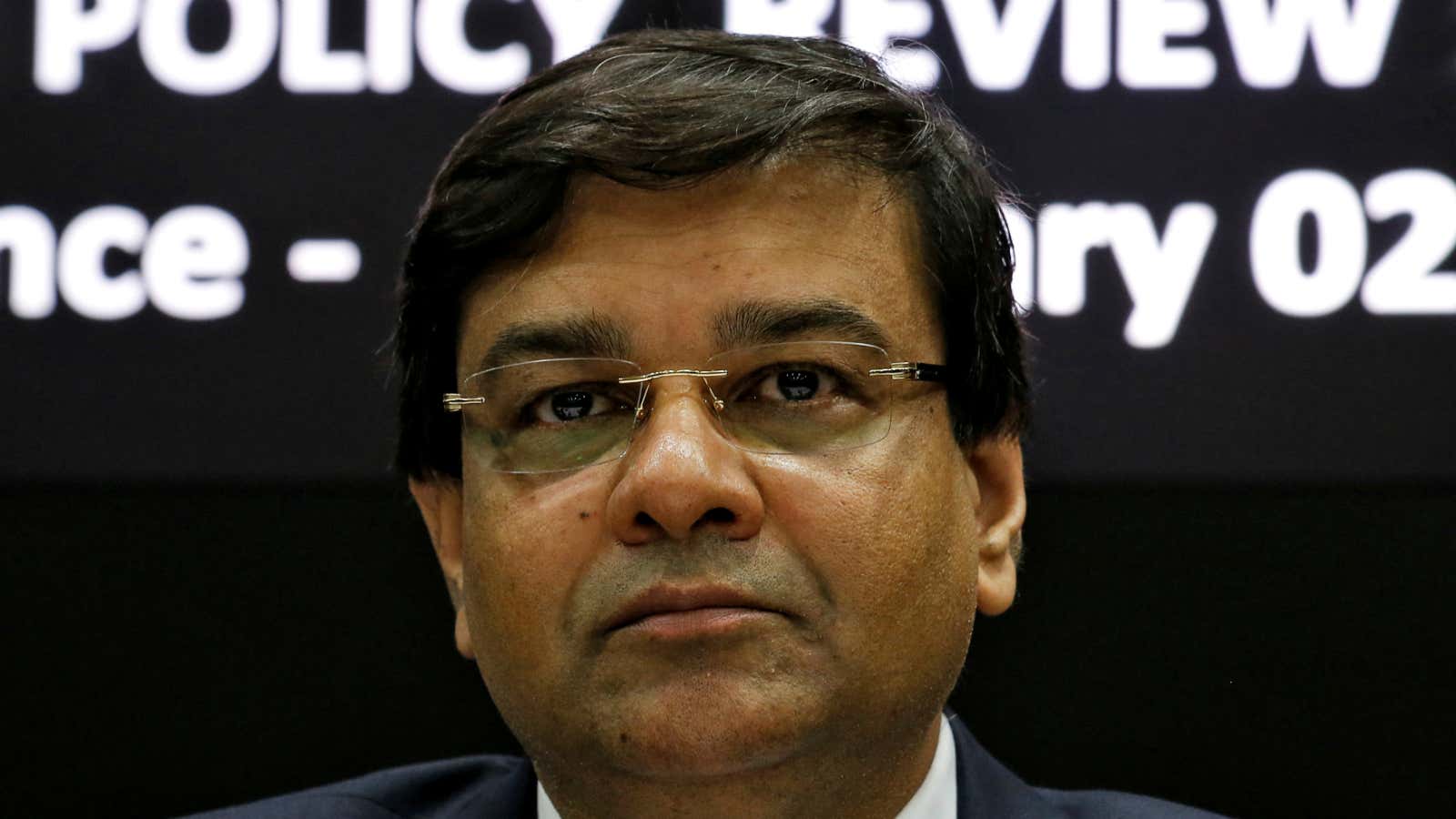It’s been a day of firsts at the Reserve Bank of India (RBI).
Not only was today (Oct. 04) the new RBI governor Urjit Patel’s first monetary policy review, it was also the first time that a newly-appointed committee decided the interest rate trajectory.
After meeting over the last two days, the recently-formed monetary policy committee (MPC) decided to cut the repo rate—the rate at which the RBI lends to commercial banks—by 25 basis points to 6.25%. A lower repo rate reduces the overall cost of borrowing in the country and boosts investment, thereby strengthening economic growth. The repo rate is now the lowest in six years, Reuters reported.
The policy review is keenly watched by investors for ascertaining whether Patel and the MPC will continue former governor Raghuram Rajan’s policy stance on inflation and interest rates. Rajan was rather vocal about the importance of reining in inflation and using interest rates as one way to do that.
With all six members of the MPC voting in favour of the policy decision, the committee seems to have taken into account the drop in retail inflation over the last few months.
“The momentum of growth is expected to quicken with a normal monsoon raising agricultural growth and rural demand, as well as by the stimulus to the urban consumption spending from the pay commission’s award,” the RBI statement (pdf) said. ”The accommodative stance of monetary policy and comfortable liquidity conditions should support a revival of credit to the productive sectors.”
The rationale for a rate cut was pretty strong: inflation has stabilised, and good rainfall means food prices may fall further given the likelihood of ample supply. The economy is still recovering at a slow pace and rate cut could spur private borrowing and spending. Even India’s finance minister Arun Jaitley was batting for a rate cut. In September, Jaitley had said that the RBI and the MPC should consider the fall in inflation and act accordingly.
The Sensex index—India’s benchmark—rose 0.5% as soon as the policy statement was released at 2:30pm. The index closed 0.32% higher than its previous closing level.
The MPC—appointed by the government on Sept. 23—includes three non-RBI members: Pami Dua, director of the Delhi School of Economics; Chetan Ghate, a professor at the Indian Statistical Institute; and Ravindra Dholakia, a professor at the Indian Institute of Management, Ahmedabad. The other three members are Patel, R Gandhi, an RBI deputy governor, and Michael Patra, an executive director at the central bank. Patel can give the deciding vote, in case of a tie among the members.
